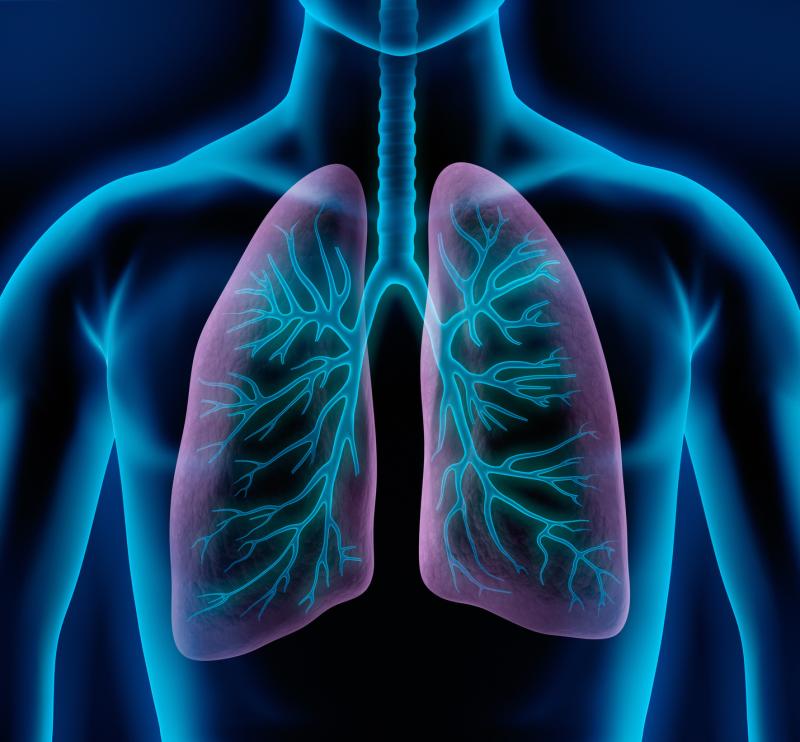
Combining gefitinib with pemetrexed and carboplatin confers significant survival benefits in patients with nonsmall-cell lung cancer (NSCLC) that harbour an epidermal growth factor receptor (EGFR) mutation, extending progressive-free (PFS) and overall survival (OS) although at the expense of increased toxicity, according to the results of an open-label phase III trial.
“To the best of our knowledge, other than dacomitinib in the ARCHER 1050* study, the gefitinib plus chemotherapy regimen used in the present trial is the only regimen that prolongs OS over standard of care,” hence representing a new first-line treatment option for in EGFR-mutated lung cancer, the investigators said. [J Clin Oncol 2018;36:2244-2250]
The trial randomized 350 patients to receive gefitinib 250 mg orally per day alone (n=176) or in combination with chemo (n=174). Patients in the combination arm were given pemetrexed (500 mg/m2 as a 10-minute infusion) and carboplatin (dosed at an area under the curve of 5 as a 30-minute infusion) every 3 weeks for four cycles, followed by maintenance pemetrexed every 21 days. Overall, 20 percent of patients had an ECOG performance status (PS) of 2, while 18 percent had brain metastases.
Response and survival were significantly different between the two treatment arms, in favour of the combination. Radiologic response rate was 75.3 percent vs 63.0 percent, while the primary endpoint of median PFS was 16 vs 8 months (hazard ratio [HR] for disease progression or death, 0.51, 95 percent CI, 0.39–0.66; p<0.001). The survival benefit was consistent across exploratory patient subgroups defined by age (≤60 vs >60 years), sex, exon mutation (exon 19 vs others), brain metastases and ECOG PS (0/1 vs 2). [J Clin Oncol 2019;doi:10.1200/JCO.19.01154]
At a median follow-up of 17 months, median OS was not reached in the combination arm as compared with 17 months in the gefitinib-alone arm (HR for death, 0.45, 0.31–0.65; p<0.001). Additionally, gefitinib plus chemo was associated with a significant delay in time to second progression (median time from randomization to PFS2, 23 vs 14 months; HR, 0.69, 0.53–0.92; p<0.001).
The combination regimen resulted in greater toxicities, mostly due to increased myelosuppression, nephrotoxicity and hypokalaemia. Grade ≥3 adverse event (AE) rate was 75 percent vs 49.4 percent rate (p<0.001), while that of serious AEs was 50.6 percent vs 25.3 percent (p<0.001).
The use of gefitinib, pemetrexed and carboplatin in the trial has several advantages, according to the investigators. For the most part, these medications are easily available and affordable, and using platinum-based combination induction therapy followed by maintenance pemetrexed aligns with current standard of care.
“With multiple good first-line options available that lead to comparable PFS times, sequencing of treatment assumes paramount importance,” the investigators said. “We envision the optimal therapy sequence to consist of a combination regimen of oral TKIs with either chemotherapy or a VEGF inhibitor as first-line treatment, followed at progression by localized therapy for oligoprogressive disease and therapies directed at the mechanism of resistance in patients with multiple disease progression.”
On the other hand, osimertinib is potent in patients with EGFR T790M resistance mutation. “This may make it an attractive treatment option after first-line therapy because there are limited options after resistance mutations develop,” they added. [N Engl J Med 2017;376:629-640]
There are several limitations to the trial, including those related to being conducted at a single institution and to having an open-label design.
*Dacomitinib Versus Gefitinib as First-Line Treatment for Patients with EGFRMutation–Positive Non–Small Cell Lung Cancer